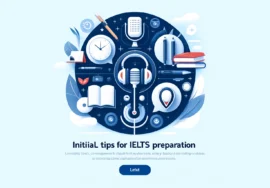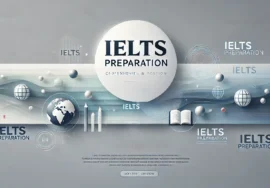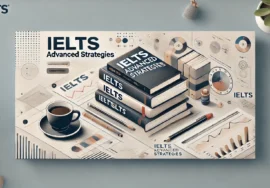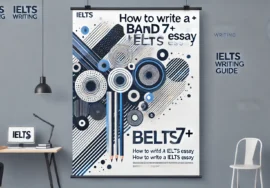
Master Your IELTS Vocabulary: Your Path to Success in Every Section
Mastering a broad and effective vocabulary is a critical step in achieving success in the IELTS exam. Words are the building blocks of communication, and in the context of IELTS, they can make the difference between a good score and an outstanding one. Expanding your vocabulary doesn’t just enhance your language skills; it also boosts your confidence and ability to perform well in both academic and general life settings. In this article, we will explore strategies and resources to help you boost your vocabulary and unlock your full potential.
Why Vocabulary Matters in IELTS
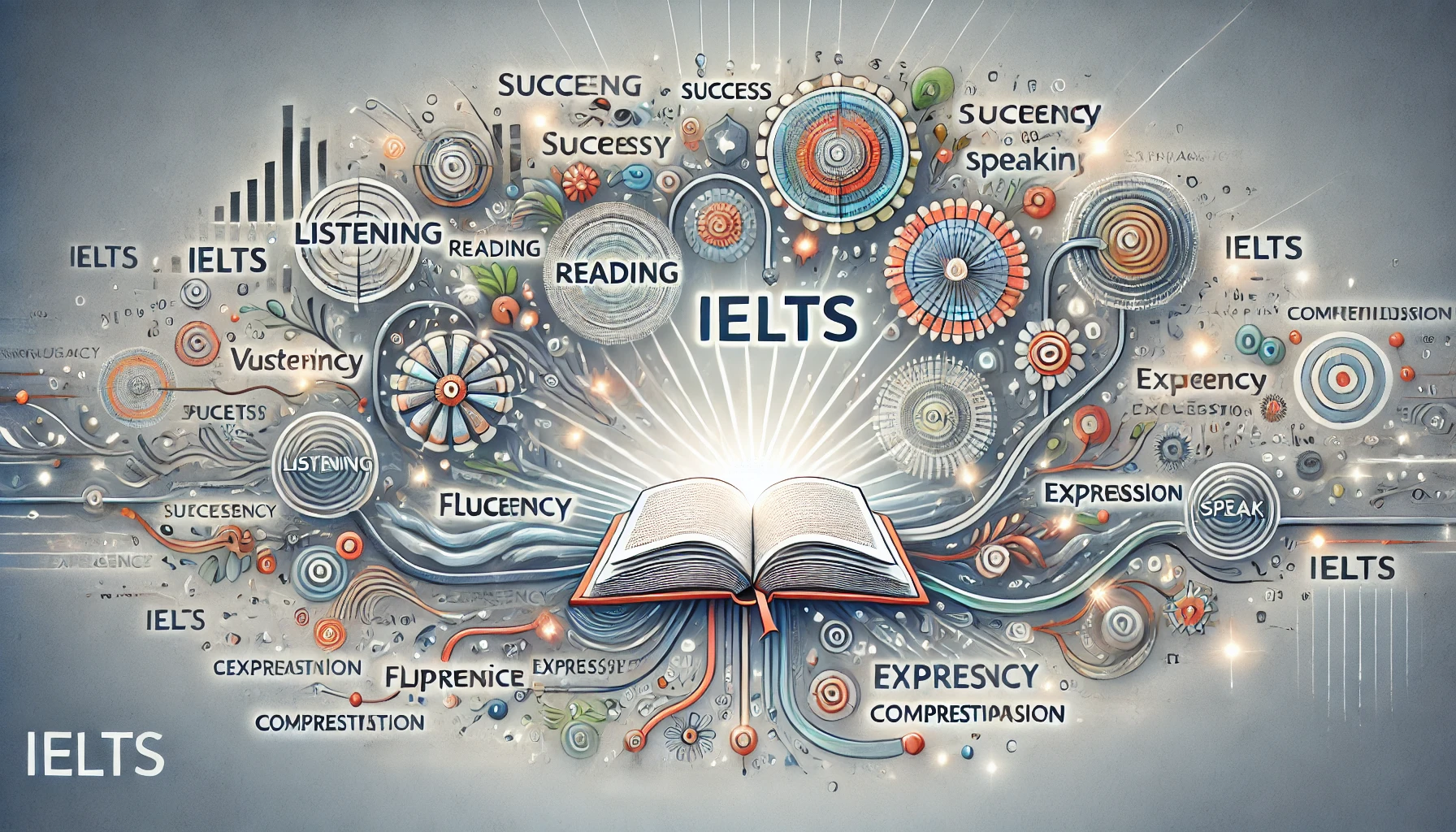
Vocabulary is the cornerstone of effective communication, and its importance in the IELTS exam cannot be overstated. It serves as the foundation for success across all four components of the test:
- Listening: In the Listening section, a wide-ranging vocabulary enables you to understand spoken English more effectively. This includes recognizing diverse accents, idiomatic expressions, and context-specific terminology. Without sufficient vocabulary, even simple conversations can become challenging to follow. For example, understanding phrases like “under the weather” or “to pull someone’s leg” could make the difference between grasping the speaker’s intention and missing key points.
- Reading: In the Reading section, a robust vocabulary helps you tackle complex texts that often include academic, technical, or formal language. Comprehending articles about scientific discoveries, historical events, or global issues relies heavily on your ability to decode and understand high-level words and phrases. This skill also allows you to identify subtle nuances and implied meanings, enhancing your accuracy in answering questions.
- Writing: Vocabulary in Writing showcases your ability to articulate ideas clearly and precisely. By employing varied and advanced words, you can elevate your essays and demonstrate a higher level of proficiency. For instance, using synonyms such as “compelling” or “persuasive” instead of “convincing” adds depth to your arguments. Additionally, proper vocabulary usage can help you avoid redundancy and enrich your sentence structure, especially in Task 2 essays.
- Speaking: The Speaking section assesses your fluency and ability to communicate ideas effectively. A diverse vocabulary allows you to articulate thoughts confidently and engage in meaningful discussions. Whether describing past experiences, debating current issues, or expressing opinions, the use of precise and appropriate words reflects your language mastery. For example, replacing general terms like “good” with “exceptional” or “beneficial” demonstrates sophistication and variety in your expression.
Each component of the IELTS exam highlights the integral role of vocabulary, not just as a tool for communication but as a measure of your overall language competency. Building a strong vocabulary requires consistent practice, exposure to diverse materials, and a focus on understanding words in context rather than merely memorizing them. With dedication and the right strategies, you can significantly improve your performance and confidence in the IELTS exam.
Vocabulary plays a pivotal role in all four components of the IELTS exam by directly influencing test-takers’ scores and performance. In the Listening section, a wide-ranging vocabulary helps you recognize words and phrases spoken in various accents and contexts, enabling you to understand the nuances of conversations. For example, distinguishing between phrases like “a tough nut to crack” and “hard to solve” can impact your ability to answer questions accurately.
In the Reading section, having a robust vocabulary allows you to comprehend academic texts with advanced or technical terms. Words such as “exacerbate” or “marginalize” are often used in reading passages, and understanding these terms can improve your ability to locate key information and draw accurate inferences.
In Writing, the use of varied and precise vocabulary enables you to articulate your ideas effectively and showcase a higher level of language proficiency. For instance, replacing “a lot of problems” with “a multitude of challenges” demonstrates a stronger command of English.
Finally, in Speaking, a diverse vocabulary is crucial for expressing your ideas clearly and naturally. Using appropriate words and phrases like “I strongly advocate” instead of “I think” can enhance the impression of fluency and sophistication in your responses. Thus, mastering vocabulary not only aids comprehension but also boosts your ability to communicate effectively in all parts of the exam.
- Listening: Understanding spoken English relies on recognizing a wide range of words and phrases, including idiomatic expressions and context-specific vocabulary. For instance, phrases like “in the nick of time” or “to break the ice” often appear in spoken language, and recognizing these can help you grasp the speaker’s intent more effectively. Moreover, understanding context-specific terms, such as “stock market crash” in a business discussion or “herd immunity” in a health-related topic, can greatly enhance your ability to follow conversations and answer questions accurately. This skill is particularly critical when accents or fast speech patterns are involved, as these can make comprehension even more challenging without a solid vocabulary foundation. Whether it’s understanding accents or idiomatic expressions, your ability to discern the context often hinges on your vocabulary knowledge.
- Reading: A strong vocabulary helps you comprehend complex texts, interpret nuanced meanings, and answer questions accurately. For example, consider a typical IELTS reading passage discussing climate change: “The rapid acceleration of greenhouse gas emissions has exacerbated the effects of global warming, leading to rising sea levels and unprecedented weather patterns.” Without understanding words like “acceleration”, “exacerbated”, or “unprecedented”, interpreting the main ideas and answering questions correctly would be difficult. Advanced vocabulary aids in grasping key points, inferring meanings, and connecting ideas within the passage. Many reading passages include academic or technical language that can be challenging without a robust vocabulary.
- Writing: Using varied and precise vocabulary demonstrates your language proficiency, enriches your essays, and showcases your ability to structure arguments effectively. For instance, in Writing Task 2, if the topic asks you to discuss solutions to environmental problems, replacing generic phrases like “fix the issues” with more specific alternatives such as “implement sustainable practices” or “adopt renewable energy solutions” shows a deeper understanding and more sophisticated expression. Similarly, using transition words like “consequently” or “however” can elevate the coherence and fluency of your arguments. This is particularly important in Task 2 essays, where academic and formal language is required.
- Speaking: Expressing ideas clearly and effectively requires a diverse vocabulary. For example, a high-scoring response to a question about environmental issues might sound like this: “I strongly advocate for the implementation of renewable energy solutions, as they are pivotal in mitigating the detrimental effects of climate change. Furthermore, transitioning to sustainable practices not only reduces carbon emissions but also fosters long-term ecological balance.” Using advanced words like “pivotal”, “mitigating”, and “ecological balance” demonstrates fluency and sophistication, which can significantly elevate your speaking score. The ability to articulate opinions, describe events, and answer questions fluently depends on your comfort with a range of words and phrases.
Effective Strategies to Enhance Your Vocabulary
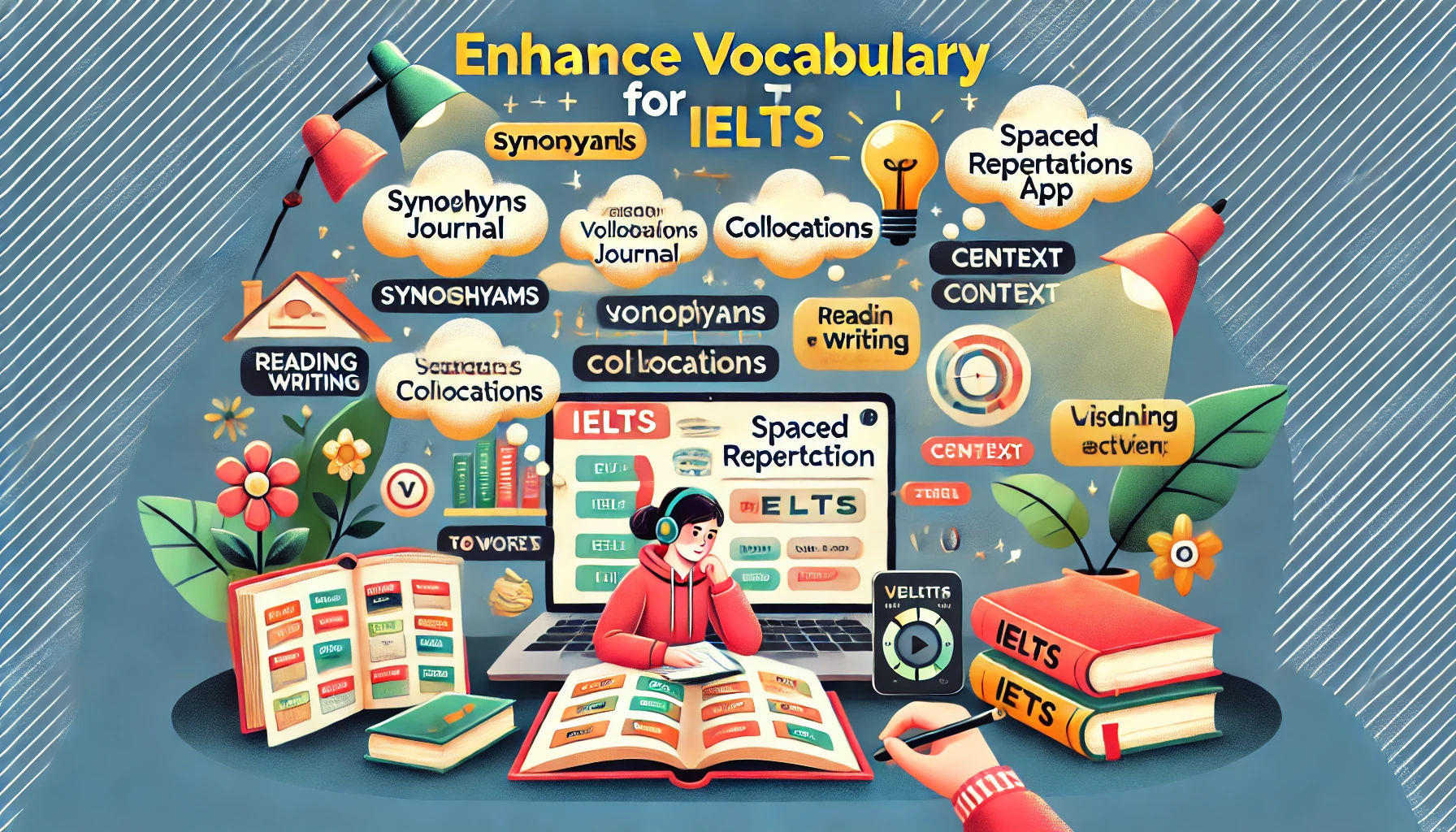
1. Learn Words in Context
Memorizing word lists can be helpful, but learning vocabulary in context is far more effective. For example, instead of memorizing the word “exacerbate”, understand it through sentences: “The heavy rainfall exacerbated the flooding problem.” This approach helps you remember how to use words correctly and naturally. Additionally, try creating your own sentences for each new word to internalize its usage.
2. Focus on IELTS-Specific Vocabulary
Certain topics frequently appear in the IELTS exam, such as:
- Environment: climate change, pollution, conservation, sustainability
- Education: curriculum, pedagogy, assessment, higher education
- Technology: innovation, automation, cybersecurity, artificial intelligence
- Health: well-being, nutrition, healthcare, mental health
Focusing on these themes ensures your vocabulary aligns with the exam’s requirements. Each of these categories can also provide opportunities to practice both general and academic word usage, making you more versatile in applying your skills.
3. Use Flashcards and Spaced Repetition
Apps like Anki and Quizlet use spaced repetition systems (SRS) to help you retain new words over time. Create flashcards with the word, its definition, an example sentence, and a synonym or antonym. By reviewing these flashcards at regular intervals, you can ensure that your memory of the words remains fresh and accurate. For additional practice, group words by themes or topics to make connections easier to recall.
4. Practice Synonyms and Collocations
IELTS examiners look for a variety of expressions. For instance:
- Instead of “important”, use “crucial”, “vital”, or “paramount”.
- Instead of “problem”, try “issue”, “challenge”, or “dilemma”.
Collocations, or commonly paired words, are equally essential. Examples include:
- “Make a decision”, “do homework”, or “strongly agree”.
- Other examples like “address a problem” or “conduct research” can make your speech and writing sound more natural and fluent.
5. Engage with Authentic Materials
Read newspapers, listen to podcasts, and watch documentaries. Sources like BBC, TED Talks, and The Economist expose you to advanced vocabulary and different contexts of usage. These materials not only broaden your vocabulary but also help you understand nuances, idiomatic expressions, and cultural references that are often tested in the IELTS exam.
6. Keep a Vocabulary Journal
Maintain a dedicated notebook to record new words, their meanings, example sentences, and any related forms. Categorize words into themes such as academic, informal, idiomatic, or technical. Regularly review and update your journal to reinforce your learning. To take it a step further, use the journal for active recall by covering the meanings and testing yourself on the words.
Essential Tools and Resources
- IELTS Word Lists: Download academic and general training word lists tailored for IELTS. These lists often include words commonly used in essays, lectures, and other academic settings.
- Cambridge Vocabulary for IELTS: A recommended book offering targeted practice and exercises to build topic-specific vocabulary.
- Online Dictionaries: Use tools like Merriam-Webster, Cambridge Dictionary, or Oxford Learner’s Dictionary to explore word meanings, pronunciations, and usage examples. Many of these tools also offer vocabulary quizzes.
- Thesaurus: Sites like Thesaurus.com help you find synonyms and antonyms to expand your word bank effectively.
- Language Learning Apps: Tools like Duolingo and Memrise offer interactive vocabulary-building exercises tailored to various proficiency levels.
Common Vocabulary Mistakes to Avoid
- Overusing Fancy Words: Using advanced vocabulary incorrectly can hurt your score. Ensure you fully understand a word before incorporating it into your speech or writing. Always prioritize clarity and accuracy over complexity.
- Repetition: Avoid repeating the same words or phrases. Diversify your vocabulary to demonstrate proficiency. For example, replace common words like “good” or “bad” with more precise alternatives such as “excellent”, “subpar”, or “unsatisfactory”.
- Ignoring Pronunciation: For the speaking test, mispronunciation can lower your score. Practice saying new words out loud using pronunciation guides or online resources like Forvo.
Practice Makes Perfect
- Writing Practice: Regularly write essays or short paragraphs on common IELTS topics. Challenge yourself to use at least five new words in each piece. Peer reviews or feedback from a tutor can help refine your language and identify areas for improvement.
- Speaking Practice: Engage in mock speaking tests and record yourself. Review your recordings to identify areas for improvement. Practice speaking with a partner or in front of a mirror to build confidence.
- Reading Practice: Highlight and learn new words from passages or articles. Try summarizing the content in your own words using synonyms. Additionally, practice answering comprehension questions to reinforce word retention.
- Listening Practice: Listen actively to podcasts or interviews, noting down unfamiliar words. Try to infer meanings from the context before looking them up.
Final Thoughts
Improving your IELTS vocabulary is not an overnight task; it requires consistent effort and smart strategies. By integrating these tips into your daily routine, you can enhance your word power and boost your confidence for the exam. Remember, every new word you learn is a step closer to achieving your IELTS goals. Beyond the exam, a strong vocabulary is a lifelong skill that will serve you in academic, professional, and personal settings. Embrace the journey, stay persistent, and watch your language abilities soar!
External Resources
- Cambridge English – IELTS Preparation Tips
- Comprehensive tips and resources for IELTS preparation.
- British Council – IELTS Vocabulary Resources
- Vocabulary guidance tailored for IELTS test-takers.
- IELTS Official – Official IELTS Practice Materials
- Official practice materials and preparation advice.
- Merriam-Webster Dictionary – Vocabulary Building Tools
- Tools and resources for expanding your vocabulary.
- Quizlet – Spaced Repetition for IELTS Vocabulary
- An app for learning and retaining vocabulary through spaced repetition.
- TED Talks – Expand Your Vocabulary with Engaging Talks
- Explore real-life contexts for vocabulary learning through engaging talks.
Improving your IELTS vocabulary is not an overnight task; it requires consistent effort and smart strategies. By integrating these tips into your daily routine, you can enhance your word power and boost your confidence for the exam. Remember, every new word you learn is a step closer to achieving your IELTS goals. Beyond the exam, a strong vocabulary is a lifelong skill that will serve you in academic, professional, and personal settings. Embrace the journey, stay persistent, and watch your language abilities soar!




